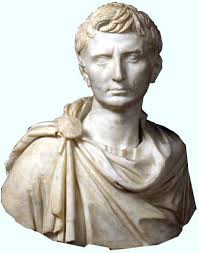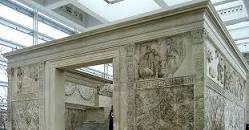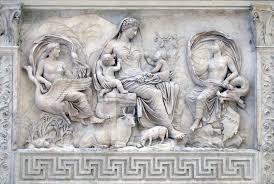

 Reed Uni: Augustus - Nature of the Sources
Reed Uni: Augustus - Nature of the Sources
An excellent analysis of the primary sources available for Augustus.
 A large collection of primary sources below!
A large collection of primary sources below!
 Suetonius: Lives of the Caesars - Augustus
Suetonius: Lives of the Caesars - Augustus
 Nicolaus of Damascus: Augustus
Nicolaus of Damascus: Augustus


Fordham University: Ancient History Sourcebook - Rome
Scroll down to 'The Principate to 192 CD' for information on Augustus.
 Lacus Curtius
Lacus Curtius
 Attalus
Attalus
 Lacus Curtius
Lacus Curtius
By Bill Thayer, of the University of Chicago

Prima Porta Augustus
See more at Khan Academy.
The Ara Pacis Augustae ('Altar of the Augustan Peace')


See more at Khan Academy and MIT.
The ENTIRE collection of resources provided by the BBC Birtles Library can be searched on ONE single, powerful search platform, which retrieves print books, eBooks, database articles and websites. Click HERE for assistance.
 Augustus: First Emperor of Rome
Augustus: First Emperor of Rome

 Rome: The Augustan Age 44 BC - AD14
Rome: The Augustan Age 44 BC - AD14
Chapter from print book 'The Ancient World Transformed: Societies, Personalities and Historical Periods From Egypt, Greece and Rome', by Pamela Bradley, Cambridge University Press, Melbourne, 2014. Scanned under licence.
 History of Rome: Augustus chapter
History of Rome: Augustus chapter
Chapter from print book 'The History of Rome' by Michael Grant, Orion Publishing, London, 1996. Scanned under licence.
 The early emperorors - Augustus to Domitian
The early emperorors - Augustus to Domitian